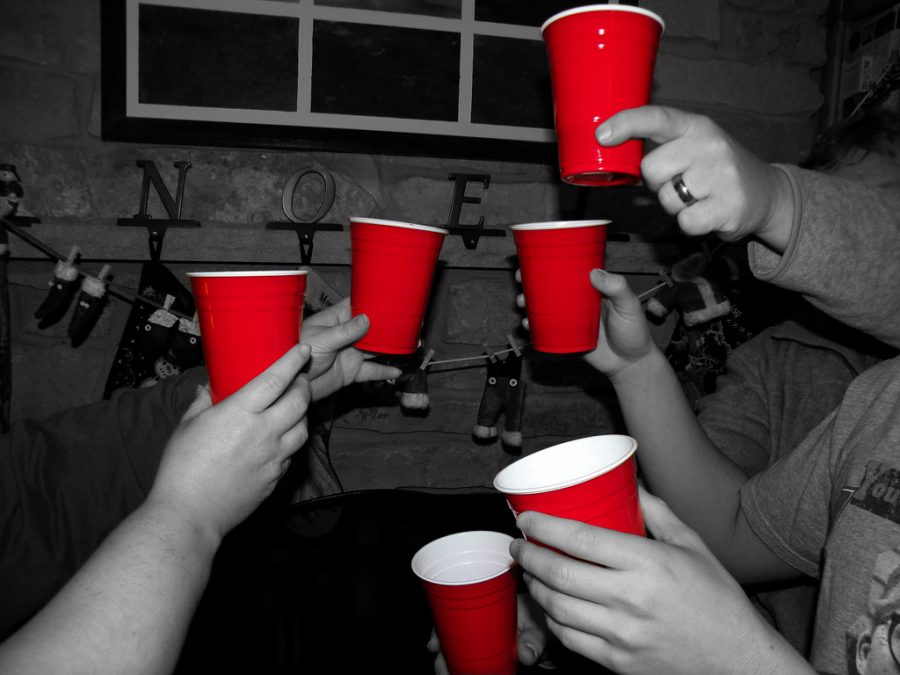Peer pressure less prominent in today’s society
People who excessively party and drink alcohol today do so because they want to, not because they are pressured into it by their peers.
Everyone has been warned to avoid peer pressure at some point in their lives. For too long, society has told younger generations to watch out for those people who have a bad influence on us to keep them from pressuring us into committing inappropriate acts. As a consequence of numerous factors, society’s conventional idea of peer pressure no longer exists among teenagers, but rather implicit or self-peer pressure does.
Today’s younger peer groups grew up on social media where they faced solely media-related coercion. Our typical idea of peer pressure can no longer exist when the only real pressure kids feel is to fit in with online influencers by following trends and adopting new identities. Ultimately, teens have become physically isolated from people, leading to a lack of socialization and peers altogether.
Nowadays, people keep their distance from those they do not regularly speak to and do not go out of their way to talk to others. Many people are highly non-confrontational, and feel no need to urge others to do something they don’t want to do. Along the same lines, individuals today like to remain just that, individuals. No one feels strongly about getting others to follow what they are doing because they would rather just be left to their own devices and could not care less about whether or not their “peers” imitate their behavior.
While people do not feel forced to act in a certain way, they do sometimes feel personally inclined to follow the herd in an effort to fit in, which is often mistaken for actual peer pressure. Whether people notice it or not, members of the younger generations today have anxiety and never wish to feel out of place. According to Healthline, implicit pressure occurs when someone alters their behavior to fit in better with their peers. This form of peer pressure is self-inflicted, rather than being brought on explicitly with a request from a peer. Various research on this subject has concluded that our brains are wired to seek validation and conform to others.
For example, students may want to say the pledge of allegiance out loud at school, but if their entire class stands there silently, they too will remain quiet. Students are not pressured against saying the pledge out loud by their peers but would still rather do as their peers are so as not to embarrass themselves.
The Fear of Missing Out (FOMO) also goes hand-in-hand with the idea of self-peer pressure. No Time for Social describes FOMO as the anxiety one feels when they are worried about missing out on experiences others are having. Social media has only made FOMO worse for teens today as they constantly see what they are missing out on. FOMO is yet another form of self-peer pressure that exists today and disproves the notion that teens more often face physical peer pressure in society today.
Most people, especially teenagers, do things they normally would not do simply because they are afraid of missing out on or being excluded from certain experiences. However, people do not behave this way due to pressure from their peers, which is why society should stop leaning on the concept of peer pressure as an explanation for our natural desire to be accepted.



